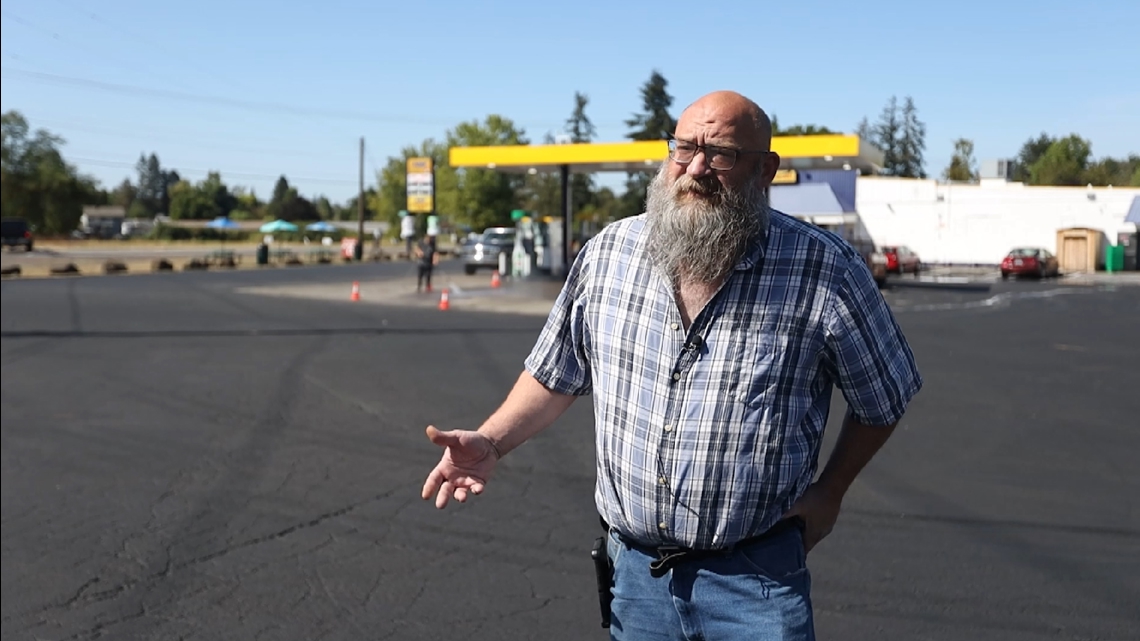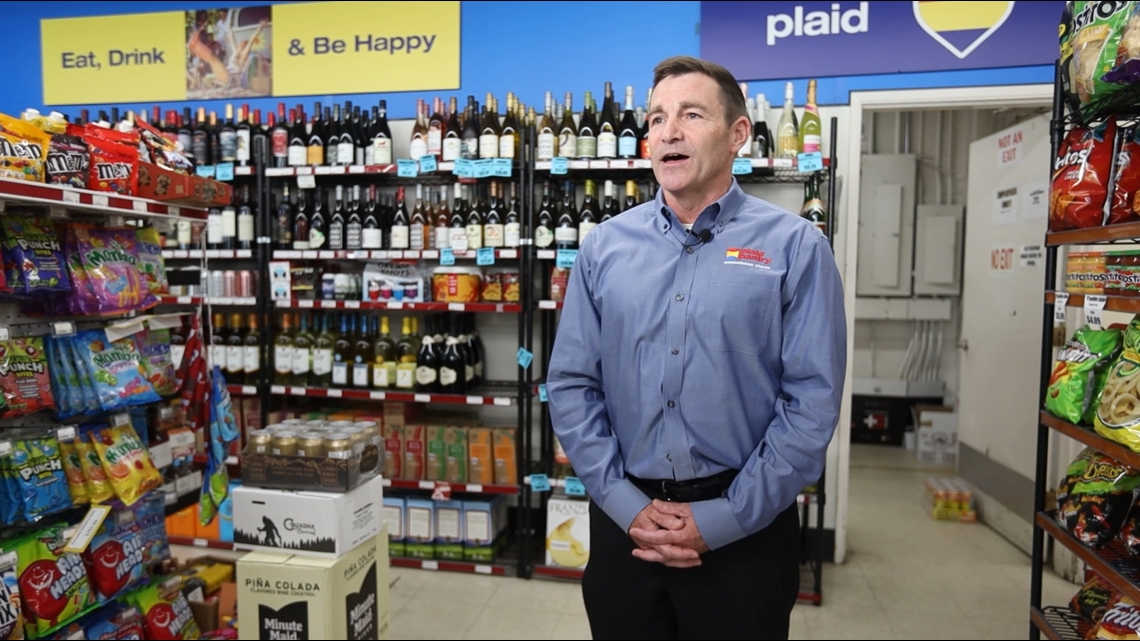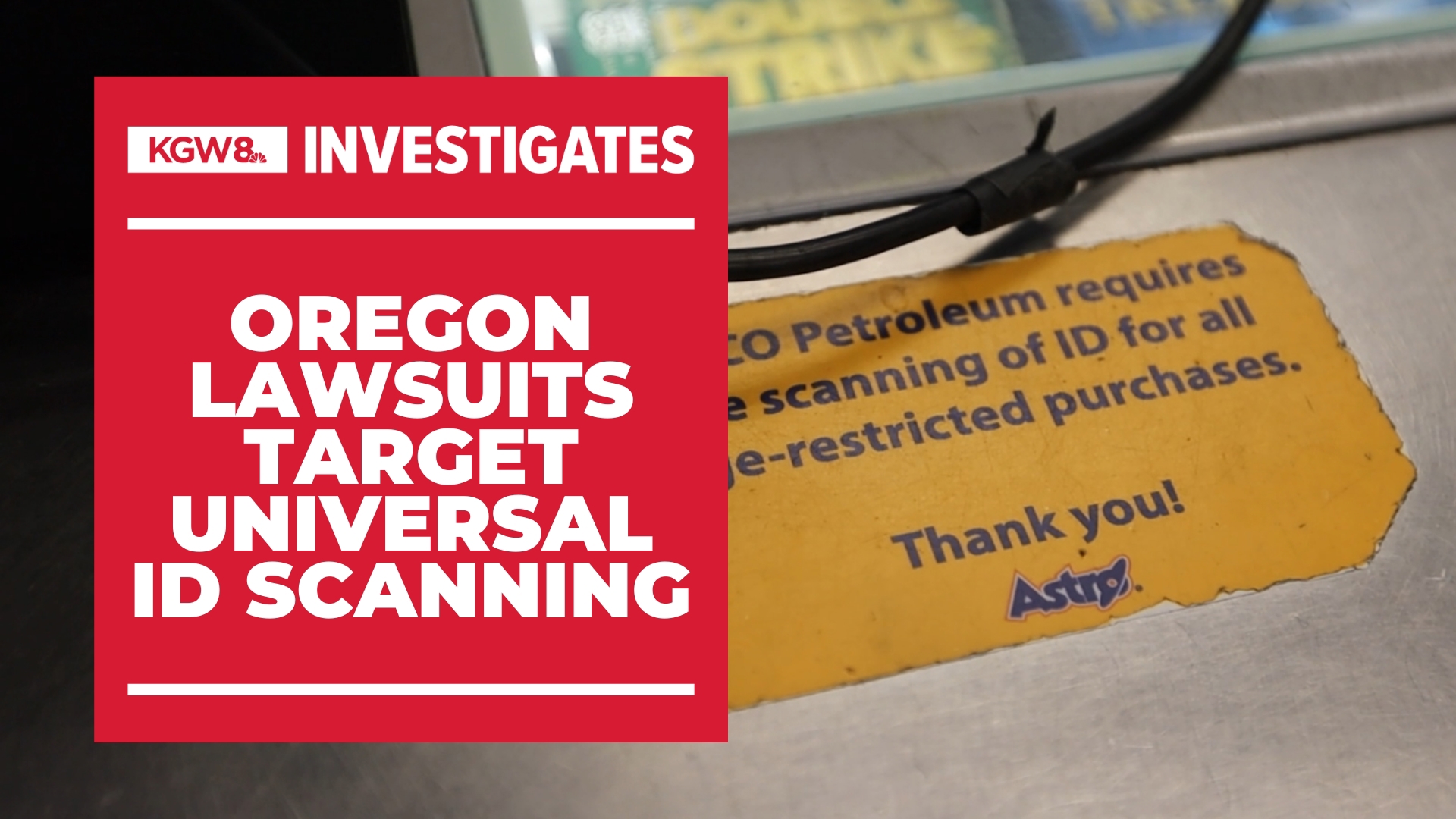PORTLAND, Ore. — If you’ve gone to buy beer or cigarettes recently, you may have encountered a clerk asking to scan your ID or driver license. A growing number of retailers have implemented universal ID checks for alcohol or tobacco products. That means they’ll card you — even if you’re 50, 60 or 70 years old. The point is to eliminate guesswork and make sure kids don’t drink or smoke, retailers explain.
A pair of class action lawsuits are looking to undo those policies, alleging they violate Oregon law.
“I understand their reasoning. Trying to protect themselves from selling to underage kids,” said Scott Dale of Molalla, a plaintiff in one of the lawsuits. “But you can’t do that when there are privacy laws in place.”
Dale is clearly old enough to buy tobacco. You don’t need to see a valid government issued photo ID to figure that out.
“I’m a 49-year-old male with gray hair, and that’s who I am,” Dale explained.


When a clerk at the Astro gas station in Molalla demanded to scan a driver’s license before selling him a can of Copenhagen tobacco — Dale refused.
“I told him, 'No you don’t need to see my ID, that’s against the Oregon law,'” said Dale. He complained to management, which responded it is company policy.
“WSCO Petroleum requires the scanning of ID for all age-restricted purchases,” reads a sticker posted next to the cash register. WSCO Petroleum owns Astro gas stations.
A growing number of retailers have implemented similar policies — which require anyone looking to buy alcohol or tobacco be carded, no matter the age, and the barcode on their driver’s license scanned for verification.
“No one has to do math. You just scan it. It’s 100% accurate,” explained Jonathan Polonsky, CEO of Plaid Pantry.
Polonsky said the universal ID policy makes it easier for clerks. They don’t have to size up a customer’s age, there’s no profiling and it helps the company stay in compliance with state and local requirements.
“All we’re trying to do is do the right thing. And make sure kids don’t get tobacco or alcohol,” said Polonsky.
Oregon law prohibits the swiping of a driver’s license except under certain circumstances including the sale of age-restricted products if there is any reasonable doubt that the person is 21.
Reasonable doubt exists if the person appears to be under the age of 26, according to Oregon Administrative Rules.
“The law does not allow a business to swipe every driver’s license on every transaction,” said Portland attorney Michael Fuller, who represents Dale.
The law, passed by the Oregon legislature in 2009 was intended to prevent the collection of data from driver’s licenses and ID cards.
“The concern is privacy,” said Fuller.
Plaid Pantry and WSCO Petroleum, which owns Astro gas stations, are both being sued over their universal card swiping policies in separate class action lawsuits.
“We are trying to be the good guys, along with other retailers and do the right thing,” Polonsky said. “For somebody to come at us and try to enrich themselves for that is frustrating.”


The attorney, Fuller, argued state law is clear, and violations can result in hefty penalties. The law allows an individual to recover actual damages or $1,000, whichever is greater. If the violation is intentional, the court can triple damages.
“The Oregon Legislature made a policy decision and decided that it wasn’t going to allow corporations to scan drivers’ licenses unless there was a reason for it in hopes of reducing the risk of a future data breach,” said Fuller.
Plaid Pantry said it doesn’t capture, collect or store any personal information when carding customers. “We only look at the date of birth,” said Polonsky.
Retailers claim the government encourages the scanning of ID and driver’s licenses to help prevent the sale of alcohol and tobacco to kids.
The Oregon Liquor and Cannabis Commission, or OLCC, specifically permits the sale of alcohol using age verification equipment and recommends it for retailers who have repeatedly sold alcohol to minors. The OLCC website includes a list of companies offering scanning equipment.
In Multnomah County, training materials provided to tobacco retailers suggest they use an app from the U.S. Food and Drug Administration to scan IDs.
Polonsky of Plaid Pantry believes the law is poorly written, and a simple fix — eliminating language about "reasonable doubt" — would allow the company to continue checking all IDs for alcohol and tobacco sales.
WSCO Petroleum declined to comment because of pending litigation.
Dale argues the law is there for a reason — to protect privacy. And company policy shouldn’t override it.
“You can’t hardly turn the news on without hearing about a data breach or a hack,” said Dale. “There’s got to be some type of protection. We shouldn’t be forced to hand over our identification and our information and not know where it goes.”

